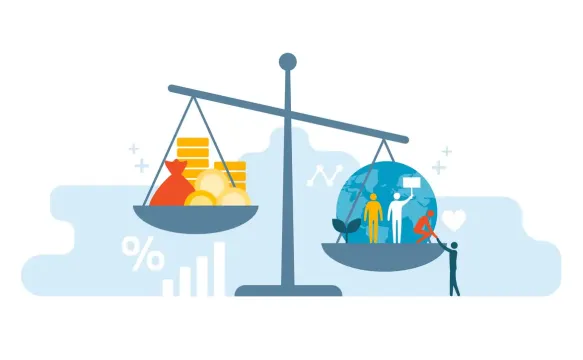The social economy has shown its capacity to achieve a real integration in society, offering work and work opportunities for the most vulnerable groups. As a whole, it contributes to the inclusive growth of the economy, reducing inequalities and promoting social justice.
Transforming values such as inclusion, equality, community wellbeing and social cohesion are essential both in the social economy and in the cooperative movement. This model has become consolidated as an economic development strategy adopted in many regions and countries, when faced with the failure of the dominant economic paradigm when trying to tackle equality, social justice and environmental sustainability.
The great challenge of the social economy is for it to become consolidated as a relevant agent within the global economic system, capable of generating a real impact and reducing structural exclusion.
Benefits of the social economy for people
Labour well-being, recognition, community ties and social inclusion all have a directly positive effect on health, self-esteem and on the participation of people who are at risk of exclusion. By integrating them into the social and economic fabric, their quality of life is improved and the social cohesion is strengthened.
According to the report Benchmarking the socio-economic performance of the EU Social Economy, the integration that is promoted by the social economy can make a deep-rooted change in society, by strengthening democracy and breaking the traditional relationship between capital and power.
This positive impact is widely agreed upon in the international community. The OECD, for example, has emphasised the importance of the social economy as a pillar for collective well-being since 1999. Back in 1996, in the report Reconciling the Economy and Society: Towards a Plural Economy, it underscored the need to “reintegrate the economy into society” to achieve positive economic and social results.
Social economy, a path towards an inclusive economy
The term “inclusive economy” started to take on relevance after the Great Recession of 2008, as a response to the deficiencies of the traditional economic system. Organisms such as the OECD, the World Economic Forum, the UN or the European Commission have promoted this concept, understanding that economic growth must be sustainable, fair and shared.
Thus, the social economy proposes a model that:
- Reduces inequality regarding income, gender, origin or capacity.
- Promotes the active participation of all the groups in the economy.
- Guarantees real opportunities for groups that are in a vulnerable situation.
- Integrates social, ethical and environmental criteria in the decision-making processes.
Although social economy and inclusive economy are not synonyms, they share common principles and objectives. The social economy offers specific instruments for building a more inclusive economy. The social economy and the inclusive economy share some values, but they are not the same:
| Concept | Social Economy | Inclusive Economy |
|---|
| Approach | Based on entities (cooperatives, associations, etc.) | Based on public policy and development objectives |
| Instruments | Companies with social and democratic purposes | Inclusive policies, incentives and business models |
| Participation | Democratic governing of the organisations | Inclusion of everyone in the economic growth |
| Legal framework | It is legally recognised in many countries | It does not always have a specific legal format |
| Examples | Insertion cooperatives, mutual societies, associations | Progressive tax policies, B companies, social benefits |
Therefore, the social economy is positioned as a specific, structured path used for reaching an inclusive economy. For example, in Spain, insertion companies allow excluded people access to decent jobs: social economy generating inclusive economy.
Social economy to achieve inclusion
The social economy is one of the most efficient tools for beating exclusion. However, to increase its scope it is essential to implement tools that allow its impact to be rigorously and transparently measured regarding both inclusion and social welfare.
Unlike charity or welfare, which usually depend on donations and do not promote horizontal or sustainable relations, the social economy proposes a structural, democratic and emancipating approach. The idea is not only to help, but also to include, empower and transform.
The social economy does not only generate employment or reduce poverty: it transforms the economic model from its very foundations, opting for dignity, justice and participation.
As opposed to a system that often marginalises people; the social economy offers a specific, measurable and sustainable response, laying the foundations for a truly inclusive, people-centred economy.


